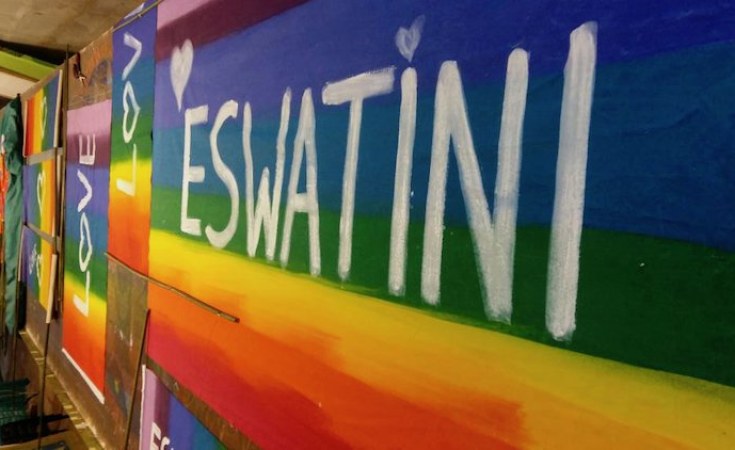Most citizens say reporting corruption risks retaliation and is unlikely to lead to government action.
Key findings
- An overwhelming majority (87%) of Emaswati say the level of corruption in their country increased over the past year. Almost three-fourths (73%) say it increased "a lot." ° Perceptions of increasing corruption are more widespread in Eswatini than in any of the 38 other countries surveyed in 2021/2023. ° The share of Emaswati who see corruption as increasing has risen sharply since 2018 (51%).
- More than eight in 10 citizens (83%) give the government poor marks on its efforts to fight official corruption, more than twice the disapproval rate registered in 2018 (38%).
- Most citizens (85%) say people risk retaliation or other negative consequences if they report corruption to the authorities. ° And three-fourths (75%) consider it unlikely that the government would take action in response to reported corruption.
- More than half of respondents say "most" or "all" police officers (55%) and civil servants (51%) are corrupt, the worst assessments among 11 institutions and leaders the survey asked about. Half (50%) say the same about business executives.
- Two-thirds (67%) of Emaswati believe that "a lot" of the resources mobilised to combat COVID-19 were lost to corruption.
- Among citizens who interacted with key public services during the previous year, almost four in 10 (38%) say they had to pay a bribe to obtain a government identity document, while about one in three report having to pay a bribe to obtain police assistance (32%) or to avoid a problem with the police (30%).
Despite the existence of an Anti-Corruption Commission since 1998, Eswatini continues to perform poorly on global corruption measures, calling into question the effectiveness of the government's anti-corruption efforts. The country's score on Transparency International's (2023) Corruption Perceptions Index has dropped by 13 points since peaking at 43/100 in 2014. Similarly, last March, the country got a failing score on the Millennium Challenge Corporation's (MCC) control-of-corruption indicator for the first time, making it ineligible for MCC grants (Nhlabatsi, 2023). In 2022, the Public Accounts Committee revealed to Parliament that since 2018, E7.4 billion ($404.3 million) in public funds, about 8% of the national budget for the same period, had been lost through unauthorised expenditures by government ministries (Dlamini, 2022).
These statistics suggest that corruption poses a significant threat to the government's drive to move away from dependence on Southern African Customs Union receipts and rely more on domestic sources of revenue to fund expenditures, as called for in the government's 2010 Fiscal Adjustment Roadmap (Ministry of Finance, 2010).
According to the findings of Afrobarometer's 2022 survey, a growing majority of Emaswati believe that corruption is increasing in the country while government efforts to combat it are failing. Most respondents say that people who report corruption risk retaliation and that the government is unlikely to take action in response to reported corruption.
Mbuso Dlamini Mbuso Dlamini is the Managing Director of QA Strategic Information.


